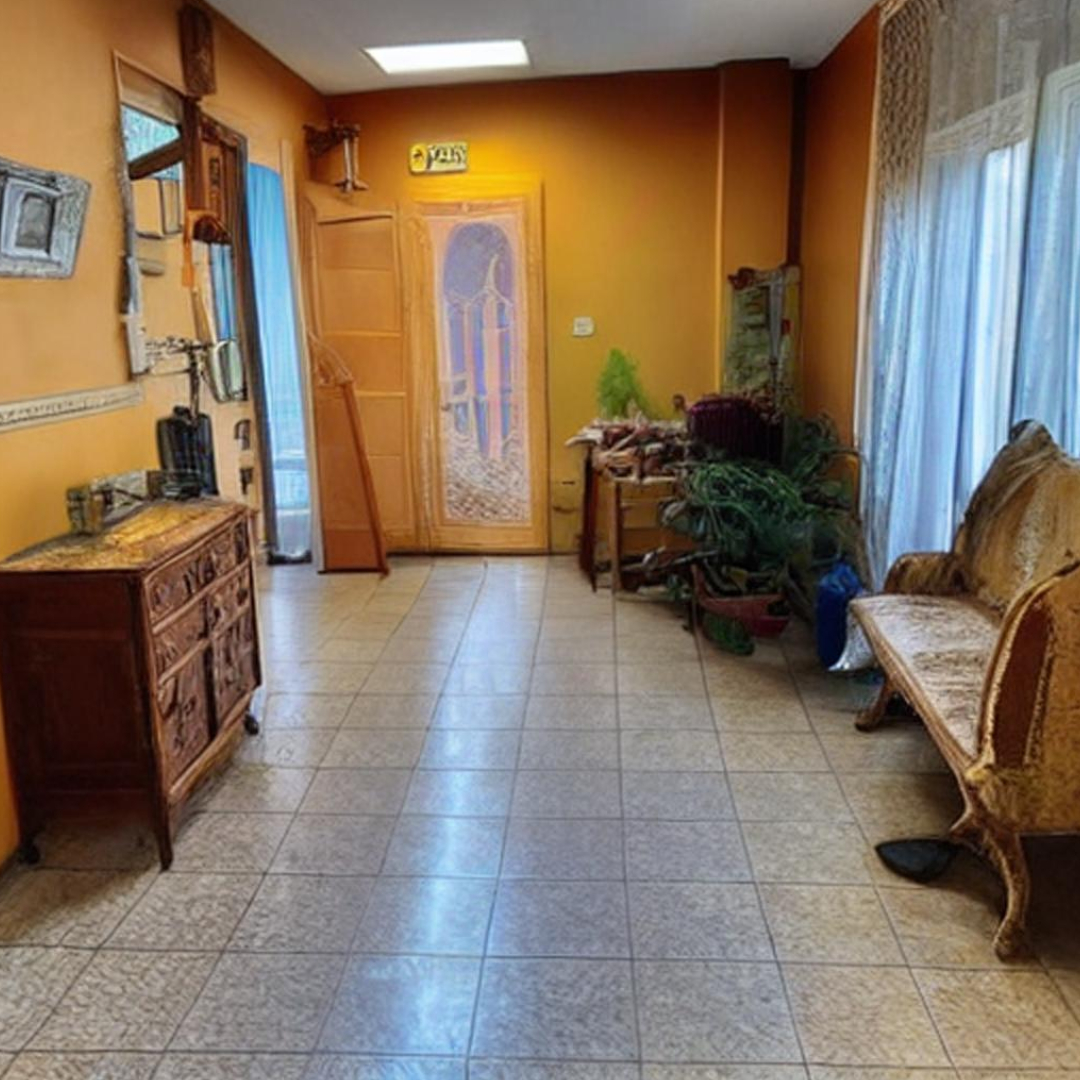Why Didn’t My Home Sell?
There are many reasons why homes fail to sell, despite being listed on the market. Selling a home can be a complex process, and it is essential to address the most common reasons for a home not to sell. Here are some of the most common reasons why homes fail to sell:
Overpricing: One of the most common reasons why homes fail to sell is that they are overpriced. When a home is priced too high, it can turn off potential buyers and make the property seem unappealing. It is essential to work with a real estate agent who understands the local market and can provide an accurate price estimate based on comparable properties.
Poor condition: Another common reason why homes fail to sell is that they are in poor condition. Buyers want to purchase a home that is move-in ready, and if a property requires significant repairs or updates, it can be a turnoff. It is essential to address any necessary repairs or updates before putting a home on the market.
Lack of curb appeal: The exterior of a home is the first thing potential buyers see, and if a property lacks curb appeal, it can be challenging to sell. Simple improvements, such as adding fresh paint, planting flowers, or updating the landscaping, can make a significant difference in a home’s overall appeal.
Poor marketing: Another reason why homes fail to sell is that they are not marketed effectively. A lack of high-quality photographs, a poorly written listing description, or limited exposure can limit a property’s visibility and turn off potential buyers. Working with an experienced real estate agent who has a strong marketing strategy can help increase a home’s visibility and attract more buyers.
Location: Sometimes, the location of a property can make it challenging to sell. For example, if a home is located in a high-crime area, it may be more difficult to find a buyer. Similarly, if a home is located in an area with limited access to schools, shopping, or public transportation, it may not be as attractive to potential buyers.
Seasonal fluctuations: Home sales can also be impacted by seasonal fluctuations. For example, the holiday season and winter months can be slower times for home sales. Working with a real estate agent who understands the local market and can navigate these fluctuations can help increase the chances of selling a home.
In conclusion, there are many reasons why homes fail to sell, ranging from overpricing and poor condition to lack of curb appeal and poor marketing. It is essential to work with an experienced real estate agent who can help address these issues and increase the chances of selling a home successfully. By taking the time to prepare a property for sale and ensuring it is priced appropriately, marketed effectively, and in good condition, homeowners can increase their chances of a successful sale.
A Guide to Preparing your Home to be Sold

Selling a home can be a complicated process, but proper preparation can make the experience much smoother. Here is a complete guide to preparing your home to be sold:
- Declutter and Clean: Before you list your home, take the time to declutter and clean every room. Clear out any unnecessary items and make sure all surfaces are dust-free and spotless. This will help your home appear more spacious and inviting.
- Make Repairs: Fix any minor repairs that may have been neglected such as leaky faucets, holes in the wall, and broken doorknobs. Consider hiring a professional to fix any major issues like a leaky roof or electrical issues. This can give potential buyers a good impression of your home and help them feel more confident about making an offer.
- Depersonalize and Neutralize: Remove any personal items such as family photos and artwork that might make it difficult for potential buyers to envision themselves living in the space. Paint the walls in neutral colors to make the home more appealing to a wider range of buyers.
- Stage the Home: Professional staging can help your home look its best and give potential buyers a good idea of how they might use the space. Consider hiring a professional stager or at the very least, rearrange your furniture to make your home feel more open and spacious.
- Improve Curb Appeal: Make sure your home looks attractive from the outside as well. Add a fresh coat of paint, plant flowers, and make sure the lawn is well-maintained. These small upgrades can make a big difference in the way your home is perceived by potential buyers.
- Price Competitively: Work with a real estate agent to determine a competitive price for your home based on local market conditions, recent sales, and the condition of your home. Setting a fair price can help you attract more buyers and increase your chances of receiving an offer.
- Market Your Home: Work with your real estate agent to create a marketing plan that will attract potential buyers to your home. This may include creating professional photographs, using online listing services, and hosting open houses.
By following these tips, you can make your home as attractive as possible to potential buyers and increase your chances of receiving an offer quickly. Remember that selling a home can be a complex process, so it’s important to work with a knowledgeable real estate agent who can help guide you through the process and answer any questions you may have.
7 of Oahu’s Most Popular Restaurants

Oahu, the third-largest island in Hawaii, is known for its diverse and delicious food scene. From traditional Hawaiian cuisine to Asian fusion dishes and contemporary farm-to-table fare, Oahu has something to offer for every taste bud. Here are some of the most popular restaurants on Oahu:
- Alan Wong’s Honolulu: This upscale restaurant in the heart of Honolulu serves contemporary Hawaiian cuisine with an emphasis on local ingredients. The restaurant’s signature dish is the ginger-crusted onaga (red snapper) served with a soy-vinaigrette sauce.
- Helena’s Hawaiian Food: This family-owned restaurant in Kalihi is a local favorite for traditional Hawaiian dishes like laulau (pork wrapped in taro leaves) and kalua pig (slow-roasted pork). The restaurant has been serving authentic Hawaiian food for over 70 years.
- Roy’s Waikiki: This Hawaiian fusion restaurant in Waikiki was founded by celebrity chef Roy Yamaguchi and features a blend of Hawaiian and Asian flavors. The restaurant’s signature dish is the blackened island ahi (yellowfin tuna) served with wasabi soy butter.
- Marukame Udon: This casual noodle shop in Waikiki is known for its fresh, made-to-order udon noodles and variety of tempura dishes. The restaurant has a cafeteria-style setup, with guests choosing their noodles and toppings as they move down the line.
- Nico’s Pier 38: This seafood restaurant in Honolulu’s industrial district is known for its fresh fish dishes, including the popular fish and chips and the ahi poke (raw tuna salad). The restaurant also has a fish market where guests can purchase fresh seafood to take home.
- The Pig and the Lady: This Vietnamese-inspired restaurant in Honolulu’s Chinatown serves a range of creative dishes with an emphasis on locally sourced ingredients. The restaurant’s signature dish is the pho french dip, which features slices of tender beef in a flavorful broth, served with a side of banh mi-style bread for dipping.
- Leonard’s Bakery: This iconic bakery in Honolulu is famous for its malasadas, a Portuguese doughnut-like pastry that is a staple of Hawaiian cuisine. The malasadas are available in a variety of flavors, including plain, filled with custard or haupia (coconut pudding), and coated in sugar.
These are just a few examples of the many fantastic restaurants on Oahu. With such a diverse range of cuisines and dining options available, there is something to suit every taste and budget.
Living in Hawaii: The Land of Aloha

Hawaii, the 50th and the most recent state to join the United States, is a group of islands located in the middle of the Pacific Ocean. The island state is known for its stunning natural beauty, diverse culture, and unique way of life. For many people, living in Hawaii is a dream come true. In this article, we’ll take a closer look at what it’s like to live in the land of Aloha.
Climate Hawaii has a tropical climate, with warm temperatures throughout the year. The average temperature ranges from 75 to 85 degrees Fahrenheit, with occasional rainfall. The trade winds that blow from the northeast provide a refreshing breeze, making the weather enjoyable all year round. Hawaii’s climate is perfect for outdoor activities like hiking, swimming, surfing, and sunbathing.
Culture Hawaii is a melting pot of cultures, including Native Hawaiian, American, Japanese, Chinese, and Filipino, among others. This diverse population has created a unique blend of customs, traditions, and values, which are deeply rooted in the concept of Aloha – the spirit of love, peace, and harmony. The local people are known for their welcoming and friendly nature, and visitors are often surprised by the kindness and warmth they receive.
Lifestyle Living in Hawaii means embracing a laid-back lifestyle, where the emphasis is on enjoying life, family, and friends. The pace of life is slower than in most major cities, and the focus is on spending time in nature, exploring the islands’ hidden gems, and enjoying the local cuisine. Many people also participate in cultural activities, such as hula dancing, ukulele playing, and learning the Hawaiian language.
Cost of Living The cost of living in Hawaii is higher than in most other states, primarily due to the cost of importing goods to the islands. The high cost of housing, food, and other necessities can be a challenge, but many people find the benefits of living in Hawaii to be worth the extra expense. Additionally, the state offers many resources to help people manage the cost of living, such as affordable housing programs, tax credits, and assistance for low-income families.
Education Hawaii has an excellent public education system, with many high-performing schools and a diverse range of educational opportunities. The state is home to the University of Hawaii, a public university system that offers a wide range of undergraduate and graduate programs.
Conclusion Living in Hawaii is a unique and rewarding experience that offers a tropical paradise, a diverse culture, and a laid-back lifestyle. While the cost of living can be high, many people find that the benefits of living in Hawaii outweigh the challenges. If you’re considering moving to Hawaii, take the time to explore the islands, learn about the culture, and connect with the local community to get a sense of what life is like in the land of Aloha.
Is Now the Right Time to Sell my Home?

Deciding to sell your home can be a big decision, both emotionally and financially. It’s essential to consider several factors before putting your home on the market. Here are some key considerations to help you decide if now is the right time to sell your house.
- Your Current Financial Situation: Selling a home requires a significant investment of time and money. It’s essential to evaluate your current financial situation to determine if selling your home is a financially sound decision. You should consider the costs of preparing your home for sale, such as repairs, staging, and real estate agent fees. You’ll also need to factor in the potential profits from the sale and any tax implications.
- Market Conditions: The real estate market is always changing, and the timing of your sale can significantly impact your profits. It’s crucial to consider the current market conditions in your area, including home values, interest rates, and the level of inventory. A local real estate agent can help you assess the market and determine if it’s a good time to sell.
- Personal Goals: Your personal goals and circumstances should also factor into your decision to sell. If you’re looking to downsize, relocate for work or family reasons, or need to free up equity, selling your home might be the right decision. However, if you’re emotionally attached to your home or unsure about your next steps, you may want to reconsider.
- Your Home’s Condition: The condition of your home can significantly impact the price you’ll receive and how quickly it will sell. Before listing your home, take an objective look at its condition and identify any necessary repairs or upgrades. Consider working with a real estate agent or professional home stager to help maximize your home’s potential.
- Competition: Finally, it’s crucial to consider the competition in your area. How many homes are currently for sale? What do they offer that your home doesn’t? You’ll want to make sure that your home stands out from the rest and is priced competitively.
Overall, deciding whether to sell your home is a complex decision that requires careful consideration of many factors. Consulting with a professional real estate agent can provide valuable insight into market conditions and help you make an informed decision.
Should I Sell my Property as “For Sale by Owner?”

Deciding whether to sell your home as a for sale by owner (FSBO) is a personal decision that requires careful consideration of several factors. Here are some things to consider when deciding whether to sell your home as an FSBO:
- Time and availability: Selling your home as an FSBO requires a significant investment of time and effort. You will need to handle all aspects of the sale, including pricing, marketing, showing the home, negotiating with buyers, and completing the legal paperwork. If you have the time and availability to take on these tasks, selling as an FSBO could be a good option.
- Real estate knowledge and expertise: Selling a home can be complex, and requires a certain level of real estate knowledge and expertise. You will need to understand the local real estate market, know how to price your home correctly, and be able to navigate the legal aspects of the sale. If you have experience in real estate, or are willing to invest time in learning the necessary skills, you may be able to sell your home as an FSBO.
- Marketing resources: One of the benefits of working with a real estate agent is their ability to market your home effectively. As an FSBO, you will need to handle all aspects of the marketing yourself, including creating online listings, taking photographs, and scheduling showings. If you have the resources to effectively market your home, you may be able to find a buyer without the assistance of an agent.
- Negotiation skills: Negotiating with buyers can be one of the most challenging aspects of selling a home. As an FSBO, you will need to be prepared to negotiate directly with buyers and their agents. If you are comfortable with negotiating, or have experience in sales, you may be able to successfully navigate this process.
- Legal requirements: Finally, it’s important to be aware of the legal requirements involved in selling a home. As an FSBO, you will need to understand and comply with all applicable laws and regulations related to real estate transactions in your area.
In summary, selling your home as an FSBO can be a good option if you have the time, resources, and expertise to handle all aspects of the sale. However, if you are not comfortable with the complexities of the real estate market, or lack the time or expertise to handle the sale, working with a real estate agent may be a better option. It’s always a good idea to consult with a professional to get a better understanding of your options and the specific requirements in your area.


 Facebook
Facebook
 X
X
 Pinterest
Pinterest
 Copy Link
Copy Link





